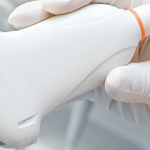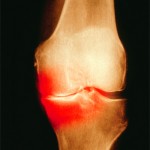(Reuters Health)—Water- or land-based exercise should provide some short-term benefit in pain management for hip osteoarthritis, though there are few well-designed trials testing it, according to a new review. “It is nice to finally have some hip-specific data, as hip and knee osteoarthritis are often grouped together, and it’s almost certain that there are differences…
Search results for: knee

FDA Approves 2 Pain Drugs & New Gout Treatment on Road to Approval
The FDA has approved two drugs designed to manage pain: buprenorphine for chronic pain and meloxicam capsules for OA pain. Lesurinad is also closer to FDA approval for treating gout…

Rheumatology Research Foundation Scholarships Help Students Attend ACR/ARHP Annual Meeting
Seven students pursuing rheumatology-related careers will head to San Francisco in November on a Student and Resident ACR/ARHP Annual Meeting Scholarship—awards that are open to students and residents from states that are underserved by rheumatology professionals. The Rheumatology Research Foundation has awarded the students $750–1,500 toward travel expenses and registration for the ACR/ARHP Annual Meeting,…

Rheumatologist Steven S. Overman Reflects on His Last Day of Practice, Future of Specialty
I am a few weeks post-retirement. Having written thank you notes and completed urgent home projects, I swing in a hammock at our currently fire-threatened cabin north of Winthrop, Wash., and reflect. I feel like a young boy while freely flipping pages of a hand-scribed picture book, The Principles of Uncertainty, by Maira Kalman. She…

Fellows’ Forum Case Report: Palmar Fasciitis & Polyarthritis Syndrome
Case report: A 78-year-old Caucasian female presented to our outpatient rheumatology clinic with pain in her bilateral shoulders, hands and knees that began suddenly one month earlier. She admitted to stiffness in her hands lasting several hours, and expressed an inability to extend her fingers. She denied fever, rashes, jaw claudication, headache or visual changes….
Use of Unspecified Codes in ICD-10: What You Need to Know
The ACR Practice Management and Coding department will periodically update the membership on the new ICD-10 coding guidelines and conventions to assist practices with accurate billing. Our top question during the first week of ICD-10 implementation was on the use of unspecified codes…

Musculoskeletal Ultrasound: A Valuable Tool for Diagnosing Rheumatic Illnesses
Musculoskeletal (MSK) ultrasound is a valuable imaging modality for the practicing rheumatologist and provides an efficient tool with high diagnostic value in the evaluation of patients with musculoskeletal complaints. The use of MSK ultrasound has evolved in the U.S. due to the emergence of less-expensive, portable ultrasound units, which provide high-quality gray-scale and power Doppler…

Phase 3 Trials: Secukinumab for Psoriatic Arthritis & DA-DKP for OA
In a global Phase 3 trial, subcutaneous secukinumab proved safe and effective in patients with psoriatic arthritis. Also, a version of aspartyl-alanyl diketopiperazine, a biologic for knee OA, has entered Phase 3 trials…

Case Report: Interstitial Lung Disease with Positive ANCA Test
“Worst of all is the pain in my calves,” she said. “It feels like burning deep inside.” So began my first encounter with a 69-year-old woman who was referred to rheumatology clinic for evaluation of two months of constitutional symptoms and a positive ANCA test, which had been ordered by her primary care doctor. Her…

EULAR 2015: Role of ACPA Positivity in Osteoarthritis
ROME, Italy—The role of ACPA positivity in osteoarthritis is coming more into focus, with results from recent studies by researchers in Germany showing that ACPA positivity apparently works in concert with rheumatoid factor positivity to enhance bone erosion and that ACPA-positive patients show signs of bone erosion before they have clinical signs of arthritis. The…
- « Previous Page
- 1
- …
- 51
- 52
- 53
- 54
- 55
- …
- 80
- Next Page »